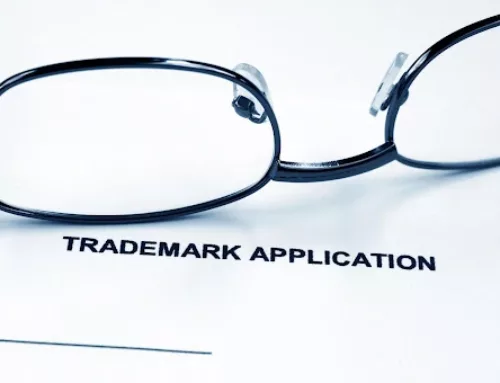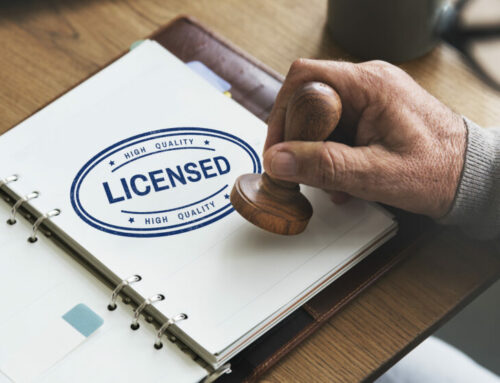Although trademarks are a popular marketing tool, when they become used in the wrong context, they can ultimately become a nightmare for specific brands, as this popularity can lead to the destruction of the trademark’s distinctiveness. When these words lose their value, it can ultimately lead to genericide and numerous other business issues. To learn more about generic trademarks and how to protect your brand’s intellectual property, contact War IP Law, PLLC, at 202-902-6362 today to review your options and the legal actions that may be involved.
What Is a Trademark?
A trademark refers to a mark used to distinguish the services or goods of one business or enterprise from those of another. These trademarks can be any phrase, symbol, design, word, or even a combination of these things––any visual or verbal indicator that can help customers associate a particular product or service with the brand that owns the displayed mark and thereby distinguish that brand’s product or service from their competitors’ similar products or services. These trademarks can also:
- Provide legal protection for the brand
- Help protect the company against fraud and counterfeiting
- Identify the source of specific services or goods
When companies fail to protect their trademarks, it can often mean bad news for the brands and lead to devastating outcomes. Take, for instance, Duncan Toys. When the company lost a lawsuit to protect its trademark for the Yo-Yo, we believe that was one of the factors that ultimately led them bankruptcy.
How Does a Brand Name Become Generic?
The United States Patent and Trademark Office indicates that a trademark can become generic if it comes to be identified with a type of product or service in people’s minds instead of being associated with a brand name or a specific source.
Yo-yos, cellophane, and even Aspirin became generic when consumers misused the trademarks to refer to these products. As a result, the owners of these products, which included Bayer AG, Duncan Toys Co., and Dupont Cellophane Co., all lost their trademark rights.
What Happens If Your Trademark Becomes Generic?
Although a generic term cannot become a trademark, a trademark can become generic. Moreover, when this happens, the trademark owner loses all their exclusive rights to use and protect the mark.
Genericide is defined as the process of a brand name losing its unique identity through its use by people. However, when the term becomes generic, it can:
- Lose its legal protection
- Become available for competitors to use in promoting their products or goods
- Lead to a loss of sales
- Erode the brand name’s value, so that advertising the product becomes much harder
Trademarks That Became Generic
Numerous companies have lost their trademarks to genericide. However, some of the more famous names to have gone through this process include:
- Band-Aid: The trademark was owned originally by Johnson & Johnson
- Post-it Note: The trademark was owned originally by Minnesota Mining and Manufacturing Company (3M).
- Hula-Hoop: The trademark was owned by Wham-O.
- Escalator: The trademark was owned by the company Otis Elevator Co.
- Dry Ice: The trademark was owned by the DryIce Corporation.
When a trademark becomes generic, the public comes to think of the word or phrase as describing the type of product rather than as identifying the source of the product. As a result, the company which originally registered the trademark can no longer own it exclusively, as a form of protected intellectual property.
How Do You Prove a Mark Is Generic?
There is a two-part test that is usually used to determine if a mark is generic:
- What are the services or class of goods at issue, and
- Does the relevant consuming public understand the term or the designation to refer primarily to the class of goods
If it can be demonstrated that the relevant public’s perception of the mark associates that mark with a category of goods, the term will usually be considered generic. However, if your company is looking for further information regarding generic trademarks and how to apply this test to a specific good or service, consider reaching out to the legal team at War IP Law PLLC, to go over all of the factors that may be involved and evaluate your legal options.
How Do Companies Protect Trademarks From Dilution and Genericide?
While genericide can cause companies to suffer various issues and struggles, there are multiple tactics companies can take to protect their trademarks from dilution and genericide. For instance:
- Trademark holders should indicate that their mark is a trademark by using symbols (TM or ® for registered trademarks) or a disclaimer statement.
- Trademark holders should not use their trademarks to refer to the class of services or goods they represent, especially when advertising the product. This is what happened with Bayer in advertising Aspirin.
- Trademark holders should monitor how competitors and the media are using their trademarks. If these organizations misuse the trademarks, the mark holder may wish to consult with an experienced trademark lawyer to determine the possible legal options to stop this misuse.
- Trademark holders should use a non-proprietary term or a different generic name together with the mark.
- Trademark holders should adhere to proper grammatical usage of the mark and avoid spelling changes, plurals, or abbreviations since this can signal that improper use is acceptable.
- Trademark holders can add the word “brand” after the mark on the product’s packaging. The Poland Spring brand’s packaging offers an example of this practice.
- Trademark holders can clarify to consumers that the trademark represents the branded item, not the type of service or good.
- Trademark holders should use proper judgment when reviewing and approving promotional materials or advertisements, as injudicious marketing copy may inadvertently dilute the trademark and confuse the public about its correct usage.
- Trademark holders can add a descriptor after the trademark to protect the brand by making it clear that the brand name should not be used as the generic name for the product, such as “Kleenex brand tissues.”
Although trademarks can be a valuable form of intellectual property and business owners are often well advised to protect their trademarks aggressively, it is important to proceed with caution and, at times, with tact when approaching a person or entity you believe may be infringing on your trademark or the trademark of a company in which you hold an interest. Traditional “cease and desist” letters have the potential for causing public relations headaches, and incautious wording may be used against the sender if the alleged infringement ends up in court. For these reasons, the American Bar Association recommends replacing confrontational “cease and desist” with a more conciliatory “please and thank you,” even when the desired result may be the same.
Reach Out to War IP Law PLLC, for Further Information About Generic Trademarks
To learn more about generic trademarks and how an experienced trademark lawyer can help protect and enforce a trademark against genericide, contact War IP Law, PLLC today by calling us at 202-902-6362 to schedule a free, confidential consultation.




